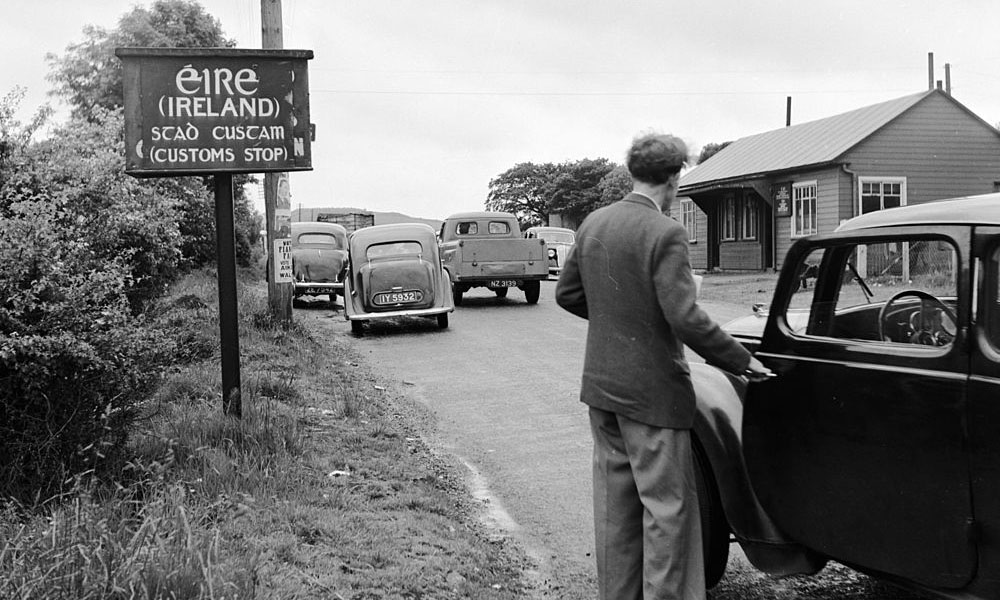Irish republicans will never swear an oath of allegiance to King C. or his heirs, prohibiting any chance they'll ever take a seat in the HoC. They tend to view the past through a prism of revenge and sentiment which tries very hard to ignore Irish misrule and division based upon a mixture of superstition and tradition. Ulster has always been a province apart from the main body in Irish politics and cannot go back to a mythical age where a united Ireland was a political reality.
I agree that Ulster was always culturally and politically different to the rest of Ireland. Just like Scotland, Wales and England are and were culturally and politicially different. That alone did not prevent their union, albeit, they had little option.
Here's an excellent piece written by a professor at Rochester Uni. Admittedly written a couple of years ago, and maybe out-of-date now.
University of Rochester historian Stewart Weaver explains the causes and consequences of the partition of Ireland 100 years later.
www.rochester.edu
And a couple of relevant quotes from that article:
...
Ulster has always been, in some ways, culturally distinct from the rest of Ireland, even before the Protestant Reformation.
...
The event known as the Flight of the Earls—when Gaelic lords of Ulster fled in 1607—left the region open and vulnerable to English and Scottish settlement. Under the Stuart monarchs, starting with James I, land ownership in Ulster was transferred from native Ulster Catholics to mostly Scottish Presbyterians, as well as some English Protestants, over the course of the 17th century.
...
In December 1921, the British reconciled themselves to the nationalists’ demands and created an Irish Free State in the 26 counties of the south.
...
They set themselves up for trouble right away with the way the border was drawn. The expectation at the time was that Northern Ireland would be left with the Protestant majority parts of Ulster, which only would have been four of the nine traditional counties. The thinking was that the area would simply be too small a state to be viable and that Northern Ireland would therefore eventually have to reconcile itself to inclusion within the Irish Free State. But the Irish Boundary Commission, established in the treaty ending the Anglo–Irish War, ultimately included six of the nine counties of Ulster within Northern Ireland, and that left a lot of nationalist areas like Tyrone, Fermanagh, and Omagh, all of which were Catholic-majority areas, stranded in Northern Ireland.
...
It resulted in a resentful Catholic minority within Northern Ireland.
...
Northern Ireland’s response to having an unreconciled, unhappy, large Catholic minority in their midst, was essentially to create a Protestant unionist one-party state, which governed with a heavy hand, to say the least. The Ulster Unionist Party in Northern Ireland wrote into law rampant discrimination against Catholics—in housing, employment, education, and job opportunities.
...
Brexit takes Northern Ireland out of the European Union and leaves the Republic of Ireland in the European Union, drawing a stark distinction and difference between Northern Ireland and the Republic of Ireland. It defies the whole spirit of the
Good Friday Agreement, the power-sharing agreement that ended the Troubles, in 1998, and tended to diminish the distinctions between north and south.
Brexit has also activated a historic sense of betrayal on the part of the Northern Irish against Britain.
...
Do you think Ireland will ever be united again?
Before Brexit, I would have said, “yes.” There was a kind of momentum and there seemed to be a will for reunification.
...
But then Brexit happened. Brexit, of course, doesn’t just present a challenge to the Irish and to the status of Northern Ireland in the United Kingdom. It is also deeply unpopular in Scotland, where it has renewed calls for a second referendum on independence. Ultimately, Brexit could implode the entire union of the United Kingdom. We’ll see.


